Key Principles for Practicing Sustainable Ecotourism
Selected theme: Key Principles for Practicing Sustainable Ecotourism. Step into a mindful way of traveling that protects wild places, uplifts local communities, and enriches every journey with purpose. Share your thoughts, join the conversation, and subscribe for more hands-on guidance.
Foundations: Ethics That Guide Every Sustainable Ecotour
Do No Harm, Leave More Than You Take
Adopt Leave No Trace adapted to tourism: stay on marked paths, carry out all waste, avoid removing shells or plants, and support local conservation funds. Aim to leave positive contributions that outlast your footprints.
Respect People, Culture, and Consent
Learn local customs, ask before taking photos, dress appropriately near sacred sites, and listen more than you speak. A few phrases in the local language can open doors and demonstrate genuine respect for hosts.
Support Conservation Outcomes, Not Just Experiences
Choose itineraries that contribute to protected areas through fees or direct donations. Volunteer only when roles are needed and locally led. Prioritize long-term, measurable conservation benefits over feel-good moments.
Choose Local Ownership and Fair Jobs
Book community-run lodges, cooperatives, and homestays where profits stay local. Ask about wages, guide training, and contracts. Your booking becomes a vote for livelihoods that strengthen stewardship of nature.
Food Systems with Deep Roots
Seek seasonal menus, indigenous ingredients, and small farms. Lower food miles mean fresher flavors and smaller footprints. Meet the cook, learn the story of a dish, and tip generously to honor culinary heritage.
Learning with Humility in the Field
On a forest walk in Borneo, a Dusun guide named Lani once taught us to read orangutan nests by leaf color. Listening with humility turned a hike into a living classroom and strengthened trust.
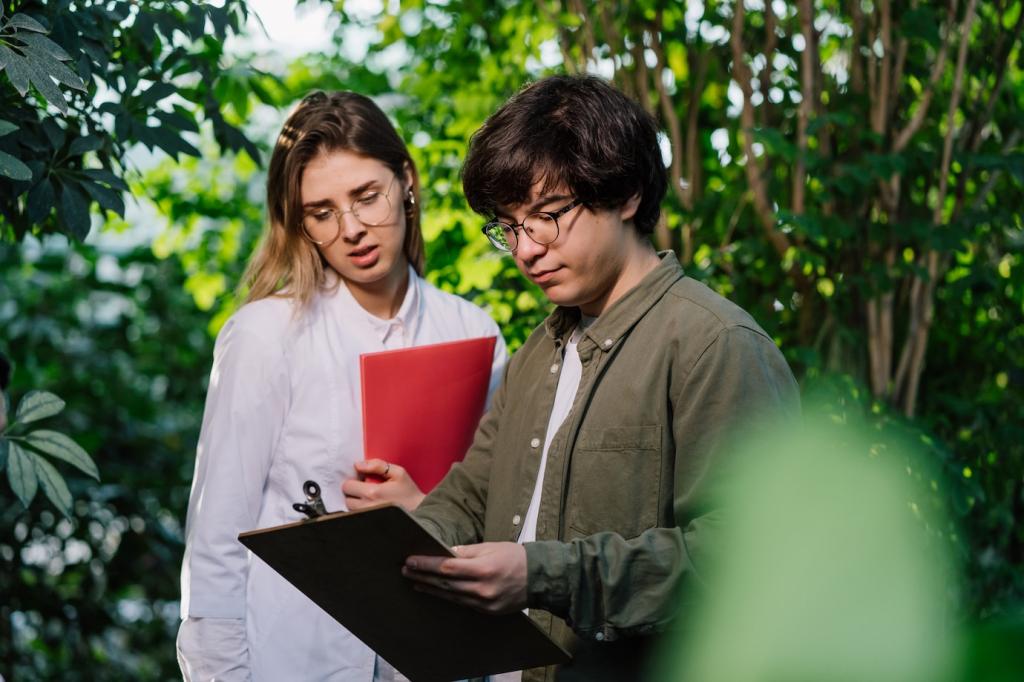




Favor rail, public buses, and shared transfers where safe and feasible. Stay longer in fewer places to deepen learning and cut transit emissions. Slow travel often reveals richer nature connections.
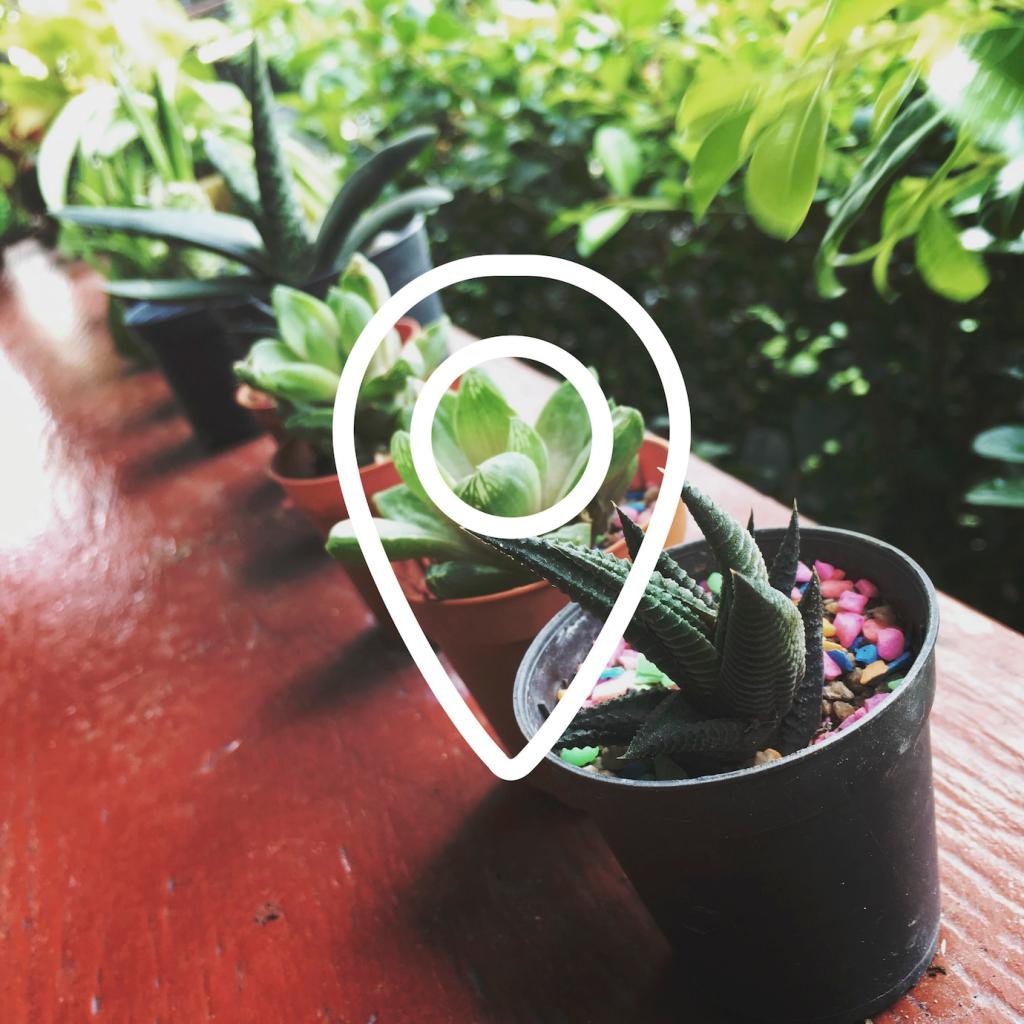
Every kilogram matters on planes and vehicles. Choose versatile layers, rechargeable batteries, and compact optics. A lighter bag lowers fuel use, simplifies logistics, and leaves more attention for the landscapes you love.
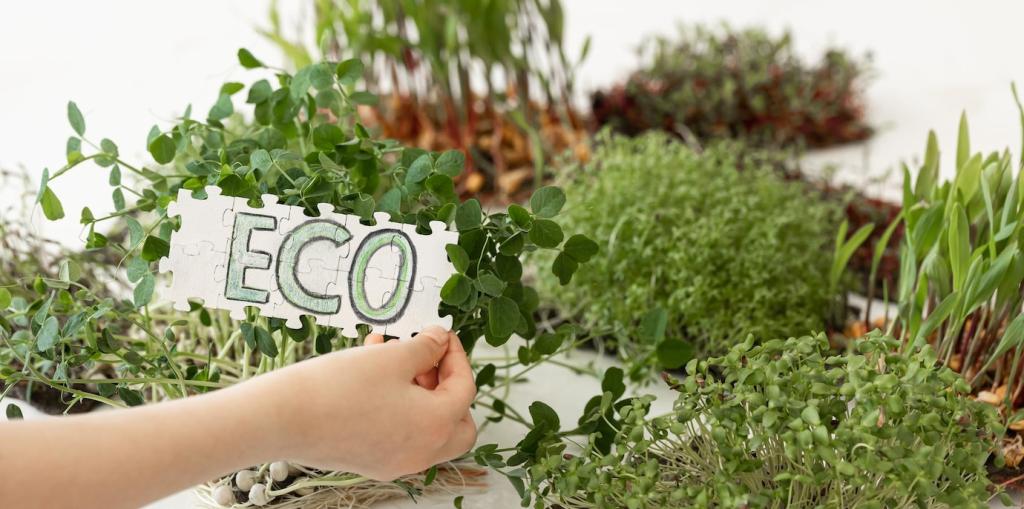
Prioritize cutting emissions, then offset with projects vetted by credible standards like Gold Standard or Verra. Review permanence and community benefits. Share your approach to inspire fellow travelers to take responsibility.
Water, Waste, and Everyday Resource Choices
Carry a filter bottle, UV pen, or chlorine dioxide tablets to avoid disposable water bottles. In water-scarce regions, take brief showers and skip laundry. Hydrate responsibly while respecting local supplies.

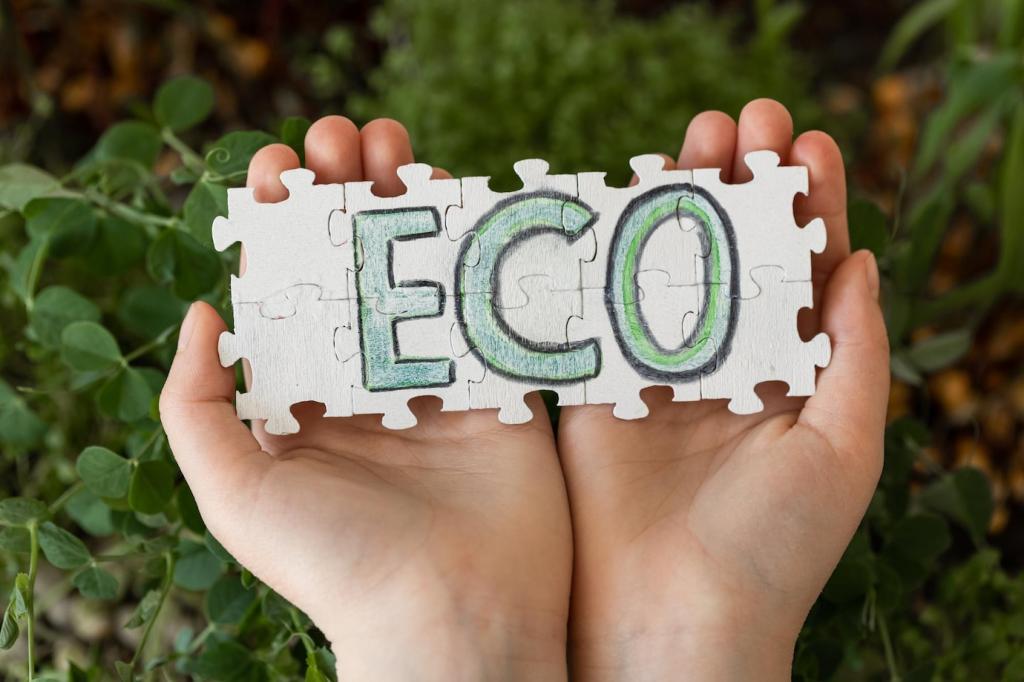
Water, Waste, and Everyday Resource Choices
Pack reusables: bottle, coffee cup, cutlery, containers, produce bags, and a compact shopping tote. Refill toiletries from bars or concentrates. Simple habits can keep dozens of single-use items out of nature.
Selecting Ethical Operators and Guides

Look for Credible Standards
Prefer operators aligned with Global Sustainable Tourism Council criteria or certifications like Rainforest Alliance. Certifications are not perfect, but they signal structured commitments and third-party verification.

Ask the Tough, Fair Questions
Inquire about wildlife distance rules, group sizes, community revenue shares, and safety training. Responsible companies welcome questions and share policies clearly, even when answers are complex or evolving.
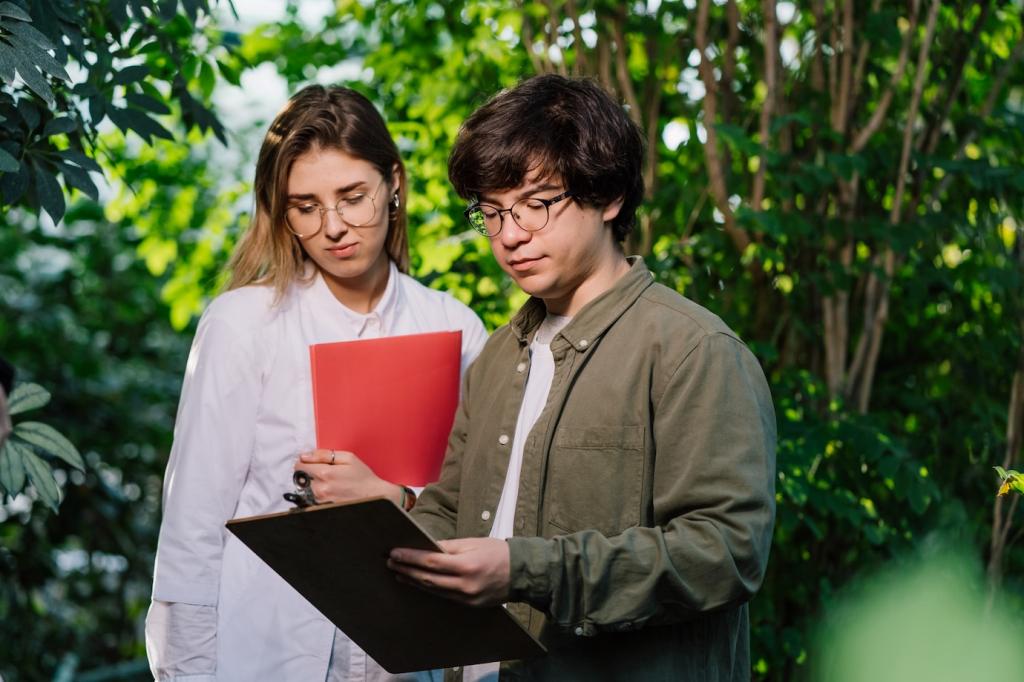
Follow the Money and the Impact
Request impact reports describing conservation outcomes, local employment, and procurement. Real accountability includes numbers, stories, and lessons learned—not just glossy promises or vague statements.
Story from the Trail: A Morning in a Community Reserve
We set out before sunrise, following a footpath only the village ranger knew. He mapped bird calls into directions, teaching us how soundscapes guide safe movement through nesting territories.
Your Sustainable Ecotourism Checklist and Pledge
Research local conservation challenges, seasonality, and cultural protocols. Vet operators, pack reusables, and plan slower routes. Tell us your top prep tip in the comments to help fellow travelers.
Join our mailing list
